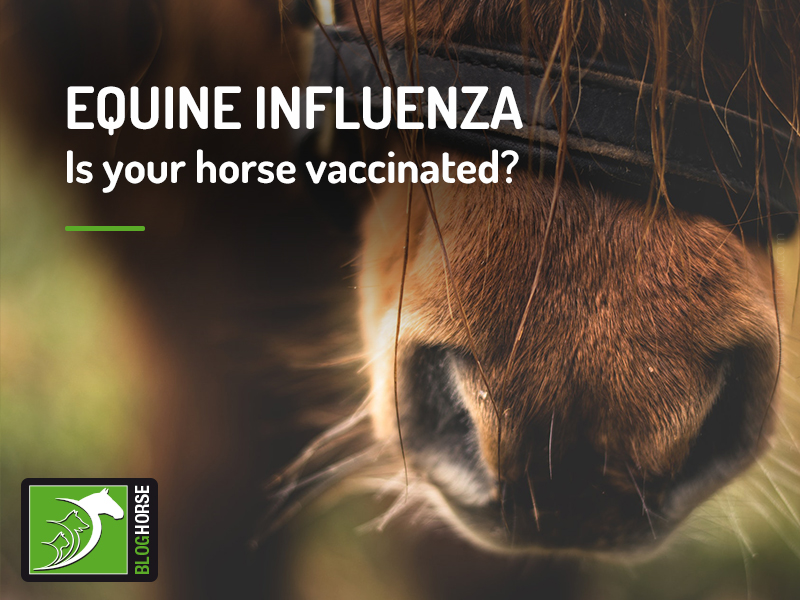
Equine Influenza - Is your horse vaccinated?

Given the recent outbreaks that have been reported throughout the UK and Europe, we feel like this is a good time to talk about equine influenza.
This disease, also known as equine flu, is highly contagious and affects horses' respiratory tract. Most cases will show signs of lethargy, decreased appetite, fever, nasal discharge and coughing. However, more severely affected horses can develop pneumonia and other respiratory issues, which in debilitated horses can be fatal.
Besides its highly contagious nature, one other reason that allows the virus to spread so quickly among horses is that this disease has an incubation period up to five days long. This means that your horse may already be infected even though he or she is not showing clinical signs of disease.
Fortunately, there are vaccines available to keep your horses protected against influenza. Different vaccines will protect against different strains of the virus, and you should ask your veterinarian for advice regarding which one is the right option for your horse.
According to the British Horse Society, "estimates suggest that less than 40 percent of the equine population in the UK are vaccinated against influenza".
This has implications not only for individual horses that become ill but also for the horse population in general as it can lead to the spread of a very infectious virus, which will continue to affect more and more horses.
If your horse hasn't been vaccinated against equine flu or if you think its vaccination is not current, this is the perfect opportunity for you to give your vet a call. Keep in mind that by protecting your horse, you'll be protecting all horses.
Would you like to know more about horses? Check our Equine Courses:
Equine courses
Published: 08 Aug 2019
Read the previous article: Travelling abroad? Find out about canine leishmaniasis

